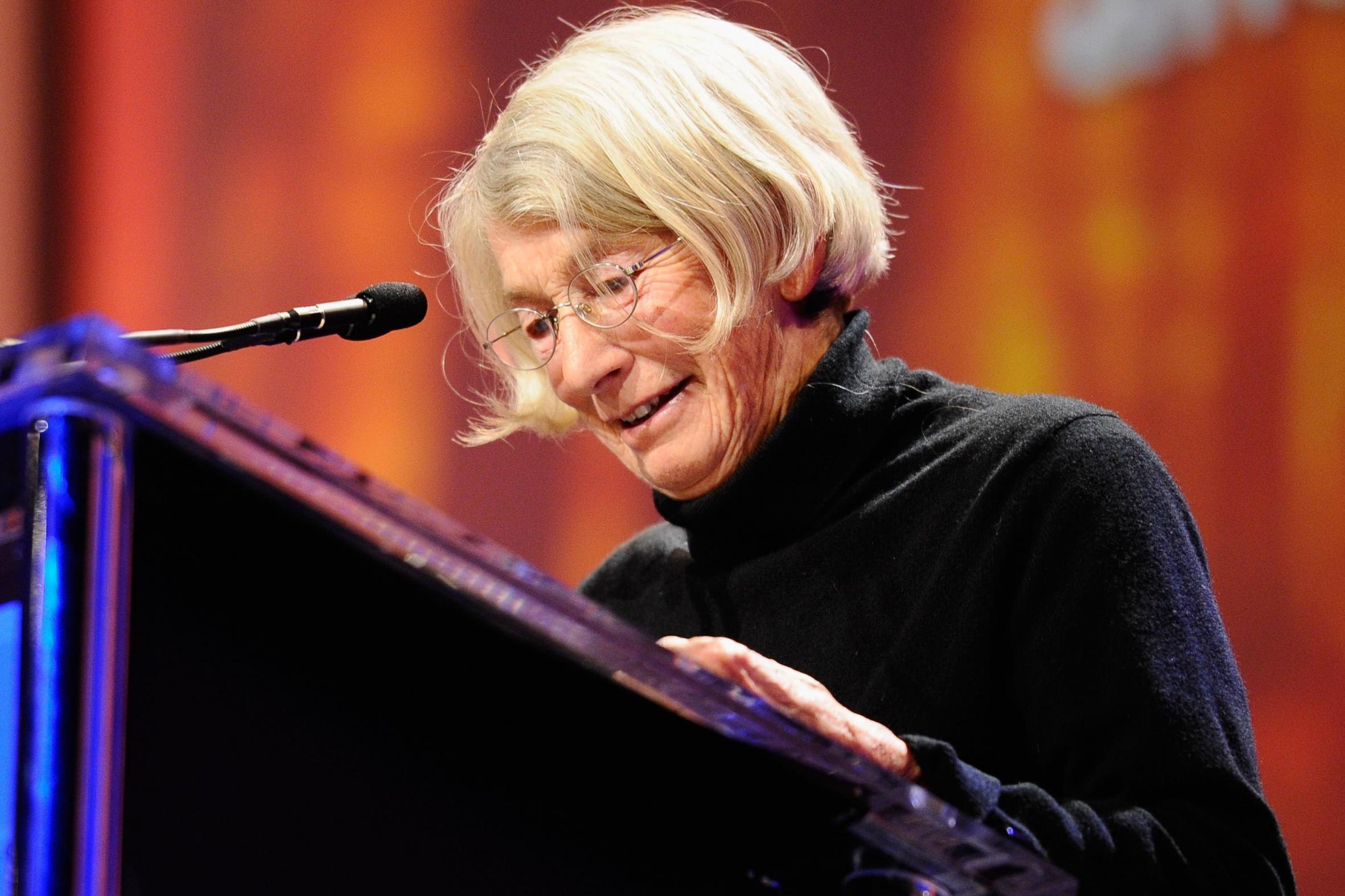Mary Oliver death: Pulitzer-winning poet dies, aged 83
Oliver died on Thursday of lymphoma, her literary executor has said

Your support helps us to tell the story
From reproductive rights to climate change to Big Tech, The Independent is on the ground when the story is developing. Whether it's investigating the financials of Elon Musk's pro-Trump PAC or producing our latest documentary, 'The A Word', which shines a light on the American women fighting for reproductive rights, we know how important it is to parse out the facts from the messaging.
At such a critical moment in US history, we need reporters on the ground. Your donation allows us to keep sending journalists to speak to both sides of the story.
The Independent is trusted by Americans across the entire political spectrum. And unlike many other quality news outlets, we choose not to lock Americans out of our reporting and analysis with paywalls. We believe quality journalism should be available to everyone, paid for by those who can afford it.
Your support makes all the difference.Celebrated poet Mary Oliver has died at the age of 83.
Bill Reichblum, Oliver’s literary executor, says she died on Thursday at her home in Hobe Sound, Florida. The cause of death was lymphoma.
Oliver, a winner of the Pulitzer Prize, wrote rapturous odes to nature and animal life that brought her critical acclaim and popular affection.
The author of more than 15 poetry and essay collections, Oliver crafted brief, direct pieces that sang of her worship of the outdoors and disdain for greed, despoilment and other human crimes.
One of her favorite adjectives was “perfect,” which she rarely applied to people. She drew inspiration from owls and butterflies, frogs and geese, the changes of the seasons, the sun and the stars.
“In my outward appearance and life habits I hardly change — there’s never been a day that my friends haven’t been able to say, and at a distance, ‘There’s Oliver, still standing around in the weeds. There she is, still scribbling in her notebook,”’ Oliver wrote in Long Life, a book of essays published in 2004.
“But, at the center: I am shaking; I am flashing like tinsel.”
Like her hero Walt Whitman, whom she would call the brother she never had, Oliver didn’t only observe mushrooms growing in a rainstorm or an owl calling from a black branch; she longed to know and become one with what she saw. She might be awed by the singing of goldfinches or, as in the poem White Flowers, overcome by a long nap in a field.
She wrote in White Flowers: Never in my life
had I felt myself so near
that porous line
where my own body was done with
and the roots and the stems and the flowers
began.
Oliver's poetry books included White Pine, West Wind, and the anthology Devotions, which came out in 2017.
She won the Pulitzer in 1984 for American Primitive and the National Book Award in 1992 for New and Selected Poems. In 1998, she received the Lannan Literary Award for lifetime achievement. Her fans ranged from fellow poets Stanley Kunitz and Rita Dove to Hillary Clinton and Laura Bush.
“Although few poets have fewer human beings in their poems than Mary Oliver, it is ironic that few poets also go so far to help us forward,” Stephen Dobyns wrote of her in The New York Times.
Oliver was a native of Maple Hills Heights in suburban Cleveland, and endured what she called a “dysfunctional” family in part by writing poems and building huts of sticks and grass in the nearby woods. Edna St Vincent Millay was an early influence and, while in high school, Oliver wrote to the late poet’s sister, Norma, asking if she could visit Millay’s house in Austerlitz, New York. Norma Millay agreed and Oliver ended up spending several years there, organizing Edna St Vincent Millay’s papers.
While in Austerlitz, she also met the photographer Molly Malone Cook — “I took one look and fell, hook and tumble,” Oliver later wrote — and the two were partners until Cook’s death, in 2005. Much of Oliver’s work was dedicated to Cook.
Oliver studied at Ohio State University and Vassar College, but never graduated and later scorned much of her education as “a pre-established collection of certainties”. She did teach at Case Western University and Bennington College among other schools, although much of her work drew upon her childhood and the landscape around Provincetown.
“I am not very hopeful about the Earth remaining as it was when I was a child. It’s already greatly changed. But I think when we lose the connection with the natural world, we tend to forget that we’re animals, that we need the Earth,” Oliver, who rarely spoke to the press, told Maria Shriver during a 2011 interview for Oprah Winfrey’s O magazine.
“If I have any lasting worth, it will be because I have tried to make people remember what the Earth is meant to look like.”
She wrote often of mortality, but with a spirit of gratitude and completion. In Circles, she pronounced herself “content” not to live forever, having been “filled” by what she saw and believed. In When Death Comes, she hoped that at the end of life she could look back and see herself as a “bride married to amazement".
A passage of When Death Comes reads: When it’s over, I don’t want to wonder
if I have made of my life something particular, and real.
I don’t want to find myself sighing and frightened,
or full of argument.
I don’t want to end up having simply visited this world.
Additional reporting provided by AP.
Join our commenting forum
Join thought-provoking conversations, follow other Independent readers and see their replies
Comments